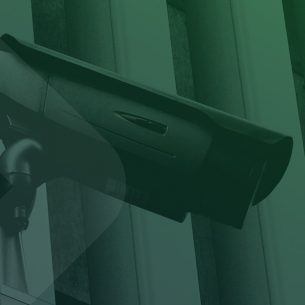Writing in The Times, Partner Maria Theodoulou examines why the Investigatory Powers Tribunal must be given the power to penalise police and intelligence agencies over disclosure failings by awarding costs.
Maria’s article was published in The Times, 8 May 2025, and can be found here.
The Investigatory Powers Tribunal (IPT) occupies a unique and vital role in holding public authorities to account. It operates independently of ministers and Parliament and is tasked with ensuring that the police and intelligence services stay within the bounds of the law when exercising covert investigatory powers.
However, a recent case has exposed an uncomfortable truth that the IPT lacks the authority to enforce its own decisions.
In a ruling involving the unlawful surveillance of two journalists investigating police corruption, the IPT found that the Police Service of Northern Ireland (PSNI) had repeatedly delayed or failed to disclose crucial evidence. The Tribunal described this non-compliance as “sustained, unjustified and unexplained.” The facts suggested not only carelessness, but a deliberate failure to cooperate with the legal process.
Yet, shockingly, panel of five judges concluded that the Tribunal had no statutory power to award costs against the PSNI over these disclosure failings.
In any functioning legal system, enforcement is the foundation of authority. Courts can compel, penalise, and award costs to ensure compliance and deter abuse. Yet, alarmingly, this case highlights how the IPT has no legal mechanism to penalise government agencies for their approach to disclosure by awarding costs – even if they have deliberately disobeyed the orders of the court.
In recognising this deficiency, Tribunal has since called on the Home Secretary to intervene in order to address the issue – either through the introduction of new appropriate rules for the tribunal or through the passing of primary legislation. The judges stated that there is a particular need for greater powers, particularly in cases “where there has been expenditure wasted as a result of [the respondents’] conduct and where, in particular, orders of the tribunal are persistently breached”.
To prevent further abuse of surveillance powers and ensure integrity in the disclosure process, this intervention from the Home Secretary is critical. Without this action, the Tribunal remains ineffective – a watchdog without teeth – unable to enforce its own decisions or hold government bodies to account.
The use of covert surveillance powers, by definition, takes place in the shadows. Walking a barely visible line between the powers necessary to prevent crime and the protection of our Human Rights in a Democratic society. The UK has the most intrusive mass surveillance regime of any democratic country. This makes strong, enforceable oversight essential. Without any meaningful sanctions, there is little to dissuade law enforcement and intelligence services from ignoring orders and dragging their feet in disclosure.
If police forces and government agencies are permitted to carry out unlawful surveillance without consequence, to deliberately withhold crucial evidence, and to walk away from court unscathed, the implications are profound. Public confidence in the rule of law depends on the principle that no one is above it – not even the state. If that principle is seen to falter, trust in our legal institutions will erode rapidly.





